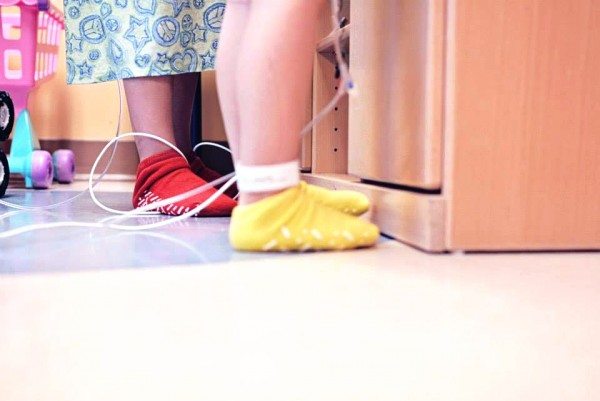You are a newly home medical needs parent, and life might be feeling like triage. Your child needs to be catheterized, tube fed, dilated and medicated. They need therapy, glasses, wheelchairs, oxygen, blood transfusions, walkers, cochlear implants, casts, g-tubes and ostomy bags. They’ll need MRIs, IVs, ultrasounds, sleep studies, anesthesia, echocardiograms, X-rays, EEGs, CT scans, transplants and lab work.
You need to find therapists, schedule appointments, administer meds, inquire about test results, schedule a home health nurse, research treatments, order medical supplies, call the pharmacy, question the insurance company, and ask for specialist recommendations.
You’ll have to learn how to check oxygen levels, give enemas, administer PICC line meds, feed through a tube, and dress your little one around casts, braces and extensions.
You have other kids, husbands and jobs, and a life before that already had its own needs.
You’ve just begun the journey, and your emotions dart between fear, hope, sadness, weakness, hero mode determination, numbness, faith, weariness, a new understanding of joy, and gratitude. Human feelings and supernatural strength will step simultaneously together.
The journey might involve a surgery and a few appointments or maybe chronic care, surgeries and interventions.
You are navigating new waters.
Swimming just ahead of you in those waters, I offer a compilation of suggestions. Though your journey will be your own, may these speak hope into your experience.
1. Let your people be your people. This is the time for a community rally, not fierce “I can handle it” independence. Accept help. Lower your protective guard. If someone offers dinner, carpool help, or to launder your socks and sheets, you say yes. Let them step into your world, even if your house is chaotic and your thoughts scattered. Be honest about your needs. Let God include the village he’s surrounded you with in the story. The new intimacy you’ll feel will be one of the gifts you are given.
2. If your child’s health allows, give yourself time before tests, therapy and surgery. Bond. The rest will come. Establish family before poking, prodding and invasive tests performed by strangers. See one specialist at a time. Guilt and urgency will fight for attention, but it’s a marathon not a race.
3. Be ready to address medical trauma in your child. Pray against it, but be knowledgeable, sensitive and intentional.
4. God has something to say. Lean in. For me, I figured out quickly that this was bigger than adoption and medical needs, bigger than me and my child. It’s about heart change and relationships between a Father and his children.
5. Gather your team. Tap into the expertise of medical needs moms on FB for referrals. Your doctors, specialists and surgeons need to be attentive, gentle, team playing experts. Your gut and your God will give you discernment. Trust it. Don’t be afraid to get second opinions and try different specialists. (We saw one local specialist a few times and then decided that we needed to travel for better care. It needs to feel “right”.)
6. Grace for the “rules”. Normal parenting and adoption best practices don’t always apply. Don’t obsess over routine and schedules. Sleep, rest, play and snuggle whenever you can. Cocooning is recommended and helpful, but may look different if your child is critically ill.
7. Find victories to celebrate. The hard has its place, but so does celebration. Your family needs cones of ice cream, movie nights, special dinners and the volume turned high on dance tunes.
8. Admit that it is hard. Don’t fake it, cover it up, chin up or try hard to act normal. No matter the internal or external pressures we feel, we must give ourselves the freedom and time to feel what is to be felt. To look at the dark parts of the trail and not look away. God is allowing it, so we must consider that He’d prefer we not shut my eyes and pretend it is all fine. Our child’s pain messes with us. There is trauma to process.
9. Rarely do we take self-care advice, but expect there to be physical, emotional and spiritual fall-out from being hyper-vigilant, over-tired, worried and over-extended if you ignore your personal needs. Be intentional about caring for yourself while trying to swim upstream.
10. You will make mistakes. You will forget to give meds, make wrong decisions, wait too long to cath and miss appointments. Have grace on the ready.
11. Don’t get too far ahead. Focus one day at a time. Fight to let your tomorrow be tomorrow. If you spend so much time anxious about the next doctor’s appointment, you just might miss your appointment-less today.
12. Part of turning corners with a special needs child is YOU getting over YOU. Their limitations can consume you. You’ve stepped well past your limits, and must rely on good health insurance, medical expertise, therapists and our limitless Lord. Be wise in your care, but also let the childhood that they fight so hard for, be theirs. Let’s not always see them and only see limits, because then we miss out on little people with gifts and big personalities. Wake up to the wonder and fun of your fearfully and wonderfully made child, outside and in between all things medical.
13. Connect with parents of children with the same medical needs. Join a closed FB group to ask your flood of questions, gain hope, connect, giggle, flounder and vent with people who face what you face.
14. Move your marriage up the triage list. You have a partner, so practice good partnership.
15. Release your grip and accept that in much of this, you are rendered helpless, but not hopeless. Weak, yet not defenseless. Consider who God is to your children, and let your faith roots grow deeper still.
May your smallness illuminate God’s bigness. Courage, dear heart.
– photos courtesy of Emily Adcox





























Leave a Reply